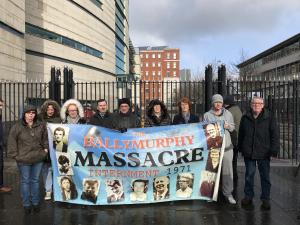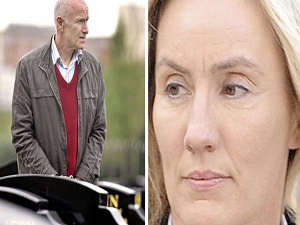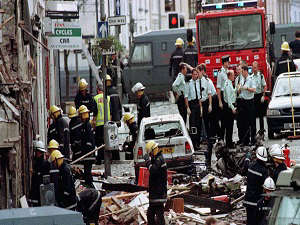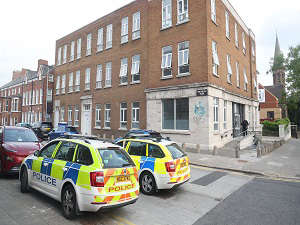
By David Young, Press Association
A coroner has expressed profound regret that an ongoing funding row is hampering efforts to progress Troubles-linked inquests in Northern Ireland.
Justice Adrian Colton said preparatory work he would like to undertake simply cannot be actioned due to lack of resources.
Presiding at a preliminary hearing for the long-stalled inquest for 10 people shot dead by the Army in the Ballymurphy area of west Belfast in 1971, Mr Colton said he still had no idea how much money he would have at his disposal at the start of the next financial year.
The Ballymurphy case is one of around 50 historic conflict-related inquests still stuck in Northern Ireland's coronial system due a political impasse over paying for them.
One year ago, Northern Ireland's Lord Chief Justice, Sir Declan Morgan, proposed that a specialist unit be set up that could deal with the cases within five years.
However, politicians have so far failed to agree to stump up the £10 million needed to fund the process.
The recent political crisis at Stormont, which collapsed the institutions and triggered a snap election, has rendered a resolution even less likely in the short-term.
Explaining to the bereaved families why he could still not list the Ballymurphy case for hearing, judge Colton said:
"Back in November, there was still a prospect that the Lord Chief Justice's proposals might be met with some favour. Clearly that is not the case now and is not going to be the case in the near future.
"We are trying to do the best we can on very limited resources.
"I do not know what resources will be available in April."
A Catholic priest and a mother of eight were among those gunned down during three days of shooting involving members of the Parachute Regiment in Ballymurphy in August 1971.
The episode is referred to by bereaved families as the "Ballymurphy massacre".
The money for the historic inquests was to be accessed as part of a Government financial package addressing a range of issues related to Northern Ireland's toxic past.
The suite of mechanisms to deal with the legacy of the Troubles is stuck in the starting blocks due to a dispute between Sinn Fein and the Government on the potential of state papers being withheld from families on the grounds of national security.
While the row relates to the workings of a new historical investigations unit, the Democratic Unionists have refused to sign off on funding the outstanding inquests until consensus is reached on all aspects of the legacy package.
The DUP has argued that inquests that focus primarily on state-linked killings should not be allowed to go ahead while investigations into paramilitary murders are not progressed.
A number of relatives involved in the cases are currently taking legal action against Stormont ministers and the Government over the failure to fund the new inquest unit.
Amid robust legal exchanges around delays in progressing issues such as file disclosure and identifying military witnesses, the judge stressed the context within which his office was working.
"I regret to say that we are constrained in relation to what we would like to do by our existing resources," he said, as relatives watched on the from the public gallery of Belfast Coroner's Court.
"There are many things that I would like to do in relation to this case and other cases and we are simply not able to do them because of resources.
"That is a matter of profound regret."


 Schools may be instructed to set up SEN provision amid crisis over places
Schools may be instructed to set up SEN provision amid crisis over places
 Double killer Hazel Stewart fails in bid to have sentence reduced
Double killer Hazel Stewart fails in bid to have sentence reduced
 Omagh inquiry told pace of disclosure ‘must increase’
Omagh inquiry told pace of disclosure ‘must increase’
 Man, 34, appears in court charged in relation to attack on Islamic Centre
Man, 34, appears in court charged in relation to attack on Islamic Centre
 Politicians urge calm after second night of Londonderry violence
Politicians urge calm after second night of Londonderry violence